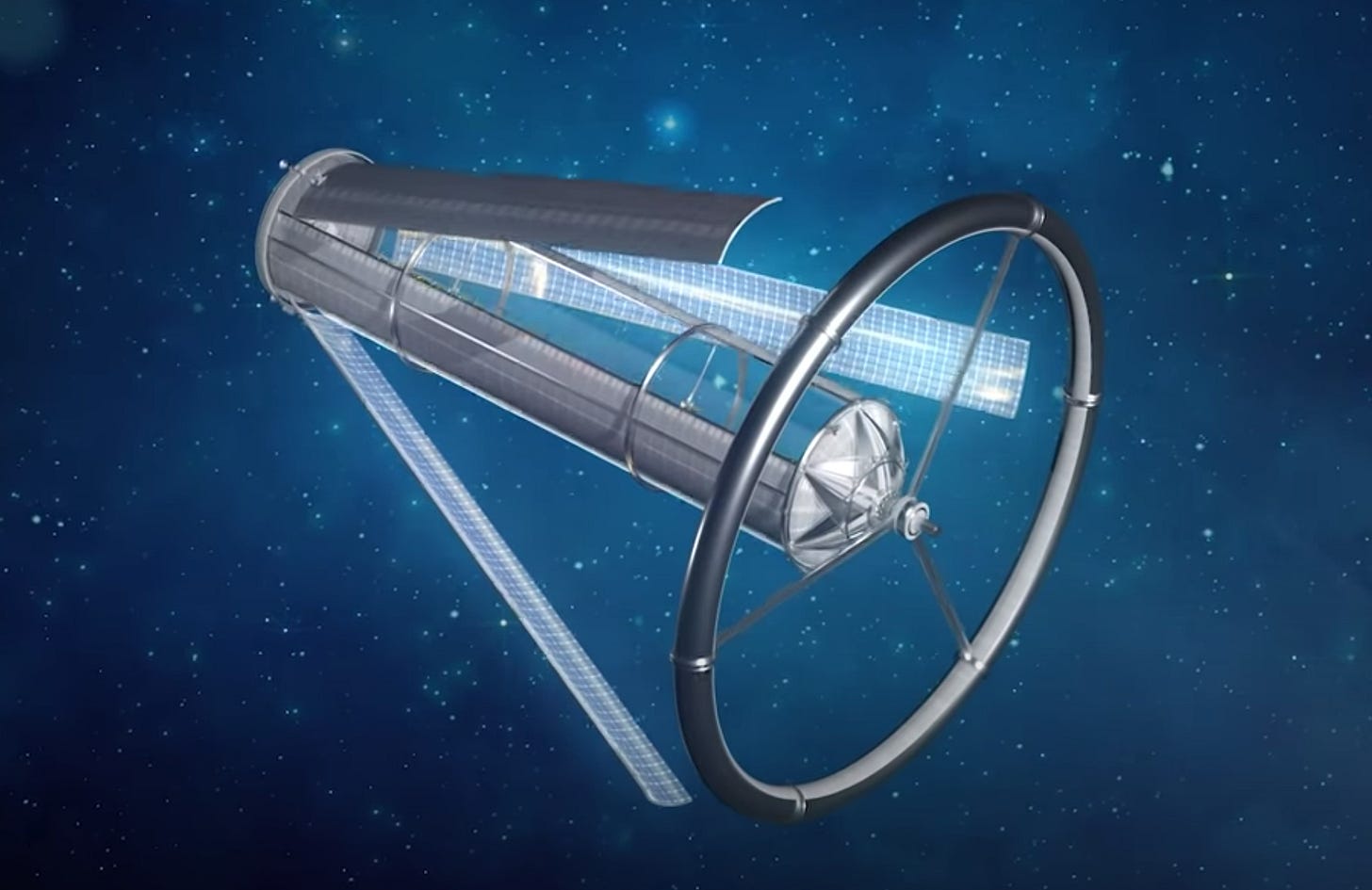Blue Origin : Beginning of space commerce
How Jeff Bezos is building the first layer that would enable commerce in space.
Earth, in all its beauty, is just our starting place. Blue Origin is opening the promise of space to all.
It all started with the question for me “Why would the owner of the biggest online store start a space company?”. How much money he would make ferrying the payload or people to space? It turns out to be a lot in the long run.
What I believe is that he is trying to create and kickstart the flywheel that will lead to space being accessible for commerce. What internet did by opening access to inaccessible markets I believe that is what Blue Origin and companies that will follow will do for space.
Jeff Bezos wants to build the road to space, here road being vehicles that are accessible to everyone. Here are the vehicles that were announced in the event:
New Shepard: A reusable suborbital rocket system designed to take astronauts and research payloads past the Kármán line – the internationally recognized boundary of space.
New Glenn: A reusable first stage built for 25 missions
Blue Moon: A flexible lander delivering a wide variety of small, medium, and large payloads to the lunar surface. Its capability to provide precise and soft landings will enable a sustained human presence on the Moon. It can deliver payloads to the lunar surface, host payloads, and even deploy payloads during its journey to the Moon.
Let's keep them aside for a moment and try to understand the current state of things.
Right now the space is expensive and prohibitive. The launch costs are high (it has come down quite a lot due to massive efforts by SpaceX and organizations like ISRO but still there is need for improvement) and you are also constrained with the slot availability which leads to losses if you miss your launch deadlines. The constrained timelines lead to more expenses like building backups or having teams working in parallel to be sure that you are not going to miss the launch dates. Less flexibility for experimentation as the costs are high. Also you are constrained on the type of payload you can send. The weight and volume of your payload could be determined by the payload you would be going with. Also, the payloads are generally meant to be one way ie you can send them up but won't get them back, think satellite. For example, there is no way for you to launch small experiments into space and get it back along with the results.
The first 2 vehicles are primarily meant to solve the above problems. They are designed from the ground up to provide frequent access to space. The early adopters of access to space would-be scientists, defense services, and corporates. They would occupy the maximum payload capacity initially. The flights done to fulfill this demand will lead to lower costs in the future due to advancements in technology. Which in turn will make it more accessible for everyone and they would be able to afford bigger payload or more launches.
The initial services are designed to cater to the above market. For example, the payload design of New Shepard allows scientists to send out prototypes and get them back. They have designed different types of payloads to make it more affordable for everyone to launch missions. For example:

Apart from being affordable, it will inspire the current & future generations to do things that are beyond earth. I believe that it will lead to a shift in the fundamental mindset of space being the playfield of government, wealthy organizations, or rich individuals. The affordable access to space will also promote a large number of iterations which will lead to exponential growth in technology for both earth and space.
Along with sending payloads, they will also enable humans to travel with payload to carry experiments. Being able to do that would perhaps lead to the creation of a large number of astronauts. Also, the ability to send humans to be sent for small duration experiments might result in lower training and resource management costs. This might help us create the army of space workers who would in the future go beyond the orbit of the earth and help humanity be established on the moon or further.
Based on the data on the website it seems that they are also designing launch control systems in a way that would require as little amount of people as possible. This is of importance as for frequent launches you would need a lot of qualified people to manage it and reducing the number of people per launch would mean you need to train less people on a large scale. In the future, it might be the case that the Blue Origin would be looking for partners to manage and run their launch systems. The recently launched Amazon Delivery Service Partner might be an experiment to test out whether it is possible to train others to run the system in the Amazon way, I am guessing that in the future the learnings from this initiative would be used to start launch centers for Blue Origin.
With the ease of developing technologies for space and training the manpower to work in space possible, we would be ready to take large scale initiatives based in space. And this would lead to the kick-off for space commerce with the establishment of logistics, technology & capable manpower in place.
While the rest of humanity is opening up to the idea of space I believe that the deep pockets of Jeff Bezos would start establishing the first warehouse on the moon with the stock of goods needed for either creating the floating space habitats or launching deep space missions. The Blue Moon is designed to help this cause. With the ability to precisely land massive cargos it wouldn't be so hard. The Blue Moon is also capable of deploying payloads during its journey to the moon, which I think would be leveraged to subsidize the cost of the journey for Blue Origin when they are constructing their base on the moon.

Having done so many missions Blue Origin might become “the” logistics provider for space commerce. And being the only player would give them a huge leverage to extract maximum possible value and drive things towards what they want to achieve as a whole. This would also put them in a position to get a "tax" on all the commercial activities that happen in space in the same way as AWS is collecting tax on a lot of commerce happening on the internet. The tax is not a literal tax but the fees they can collect due to usage of their services, and the amount becomes bigger as the usage increases.
What I believe is that the ambition of Jeff Bezos is to be the emperor of commerce in space as well and to get there he is building the road for others so that there could be an empire.
If you enjoyed reading the newsletter and would like to receive the future editions please subscribe by clicking the button below.
If you think your friends would enjoy reading this then please share using the following button.



All of these concepts seems so sci-fi but when you break it down, it doesn't seem so futuristic. Fantastic writing! So much food for thought!